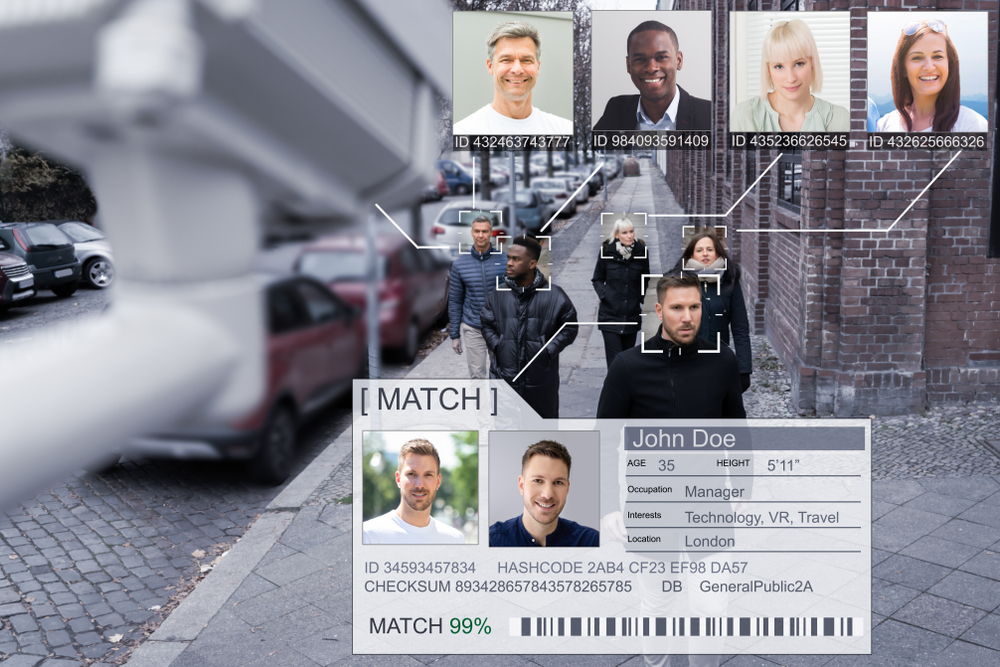EU Parliament green-lights massive biometric database for immigration control
The new infrastructure setup will join-up existing databases and create a host of new systems


The European Parliament has given the go-ahead for a massive cross-border database to house the biometric data of EU and non-EU citizens for border control and law enforcement.
The plans, which were overwhelmingly approved last week, will see the European Union (EU) establish a Common Identity Repository (CIR) that will house the details of more than 350 million EU citizens and others.
The CIR will only carry data normally found in a traveller's passport, such as name and date of birth, as well as fingerprint and facial information now frequently collected at airports during transit.
"The new rules will make EU information systems used in security, border and migration management interoperable enabling data exchange between the systems," The EU said.
"This will facilitate the tasks of border guards, migration officers, police officers and judicial authorities by providing them with more systematic and faster access to various EU security and border-control information systems."
The main elements of the legislation passed include a European search portal that allows for simultaneous searchers as against searching each separate database one-by-one, and a matching service for cross-referencing fingerprints and facial scans.
The CIR will serve as the front-end infrastructure components for a number of separate databases that comprise the new unified system, in turn, supported by the shared Biometric Matching Service (BMS) at the back-end.
Get the ITPro daily newsletter
Sign up today and you will receive a free copy of our Future Focus 2025 report - the leading guidance on AI, cybersecurity and other IT challenges as per 700+ senior executives
This will provide a common search function across all connected databases for fingerprint and facial images to cross-match with data held on central systems.
The new infrastructure also allows for border guards to check whether a person is registered under several identities in different databases.
The revamped system, which will assist with standard border checks, as well as law enforcement, was approved in two stages by the European Parliament. MEPs voted overwhelmingly by 511 against 123 to unify multiple systems, while 510 against 130 approved of streamlining the systems for judicial, law enforcement, asylum matters and migration. Nine did not participate.
The systems involved in the new set up include the existing Schengen Information System (SIS), Eurodac, and Visa Information System (VIS). The new setup will also see a European Criminal Records System for Third Country Nationals (ECRIS-TCN), an Entry/Exist System (EES) and a European Travel Information and Authorisation System (ETIAS) established.
With the new rules already agreed upon by the Parliament and European Council negotiators, they will need formal Council approval before member states are given two years to adopt them.

Keumars Afifi-Sabet is a writer and editor that specialises in public sector, cyber security, and cloud computing. He first joined ITPro as a staff writer in April 2018 and eventually became its Features Editor. Although a regular contributor to other tech sites in the past, these days you will find Keumars on LiveScience, where he runs its Technology section.
-
 Cleo attack victim list grows as Hertz confirms customer data stolen
Cleo attack victim list grows as Hertz confirms customer data stolenNews Hertz has confirmed it suffered a data breach as a result of the Cleo zero-day vulnerability in late 2024, with the car rental giant warning that customer data was stolen.
By Ross Kelly
-
 Lateral moves in tech: Why leaders should support employee mobility
Lateral moves in tech: Why leaders should support employee mobilityIn-depth Encouraging staff to switch roles can have long-term benefits for skills in the tech sector
By Keri Allan
-
 SoftBank under pressure over links with 'blacklisted' Chinese facial recognition firm
SoftBank under pressure over links with 'blacklisted' Chinese facial recognition firmNews A subsidiary of the Japanese tech giant that conducts business with Mastercard and Visa relies on tech by the sanctioned SenseTime
By Rory Bathgate
-
 India backtracks on biometric ID system warning
India backtracks on biometric ID system warningNews Despite alerting citizens to problems with the system, it has now withdrawn the warning two days after its publication
By Zach Marzouk
-
 £100 contactless payment limit could place shoppers at risk, warn industry experts
£100 contactless payment limit could place shoppers at risk, warn industry expertsNews The tech industry reacts to the new threshold introduced by the FCA
By Sabina Weston
-
 7-Eleven biometric data collection found in breach of Australian privacy laws
7-Eleven biometric data collection found in breach of Australian privacy lawsNews The US convenience store chain has been ordered to scrap its facial scanning tool and delete any stored data
By Zach Marzouk
-
 UK's surveillance guidance shows tech is "impossible to regulate"
UK's surveillance guidance shows tech is "impossible to regulate"News Privacy group Liberty says the updated code of practice fails to account for the dangers created by this "dystopian surveillance tool"
By Sabina Weston
-
 Judge forces Capitol rioter to unlock laptop using facial recognition
Judge forces Capitol rioter to unlock laptop using facial recognitionNews Prosecutors argued that the Microsoft device could contain footage of the 6 January insurrection
By Zach Marzouk
-
 AI should include 'undesirable side effect' warnings, claims PwC
AI should include 'undesirable side effect' warnings, claims PwCNews Maria Luciana Axente says data scientists should respond to an ethical code just like medical practitioners
By Sabina Weston
-
 Post Office embraces biometrics for new digital identity app
Post Office embraces biometrics for new digital identity appNews Customers can be identified for passport and driving licence renewals from the safety of their homes
By Sabina Weston